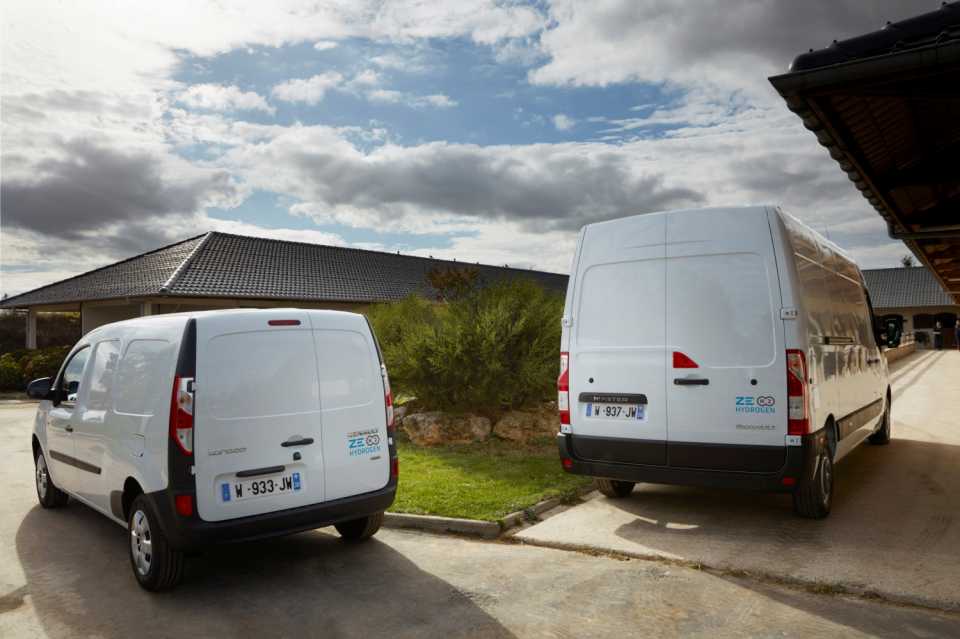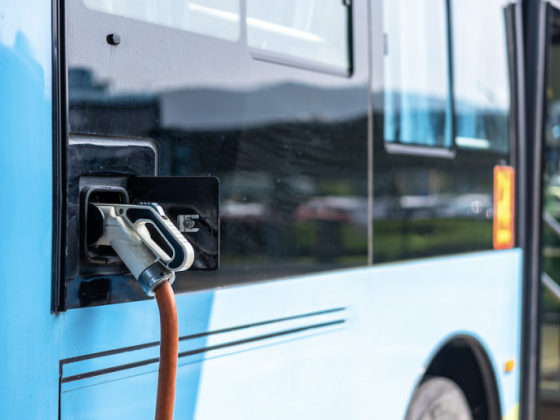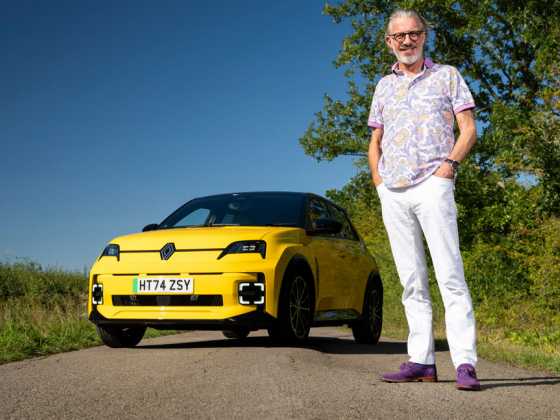Renault to introduce hydrogen fuel-cells into its electric vans

Renault will be introducing hydrogen fuel cells into its Kangoo Z.E by the end of 2019, with the Master Z.E following in 2020.
The fuel cell in the Renault MASTER Z.E. will triple the range from 75 miles to 218 miles and will be available in van (two versions) and chassis cab (two versions). Equipped with two hydrogen tanks located under the car body, the vehicle will gain in versatility with no compromises on the load volume from 10,8 m3 to 20 m3 with a reasonable additional weight of 200 kg.
The Renault KANGOO Z.E. Hydrogen will get a range of 230 miles (compared to 143 miles on Kangoo Z.E.). With a load volume of 3.9 m3, despite a reasonable additional weight of 110 kg, this vehicle will be available in France at €48,300 ex. VAT (including the battery purchase and not including ecological bonuses).
Tested since 2014, Groupe Renault’s hydrogen technology was developed in partnership with Symbio, a Groupe Michelin subsidiary. The vehicles are equipped with a range extender fuel cell providing electric and thermal power of 10 kW, increasing the range of Renault MASTER Z.E. Hydrogen and Renault KANGOO Z.E.
Denis Le Vot, Alliance SVP, Renault-Nissan LCV Business Unit: “Groupe Renault completes its range of electric light commercial vehicles with the launch of Renault MASTER Z.E. Hydrogen and Renault KANGOO Z.E. Hydrogen. These vehicles provide professionals with all the range they require for their long-distance journeys as well as record charging times. And the advantages do not stop there, as Renault MASTER Z.E. Hydrogen and Renault KANGOO Z.E. Hydrogen can run on decarbonized energy that respects the environment while offering all the comfort of electric driving.”
These hydrogen electric vehicles operate with a fuel cell, which combines hydrogen from its tanks with oxygen from the air to produce electricity (to power the electric motor). The first advantage: these vehicles meet the new environmental challenges of urban mobility. In addition, they offer increased autonomy, fast hydrogen recharging (from five to 10 minutes) and easy maintenance.



